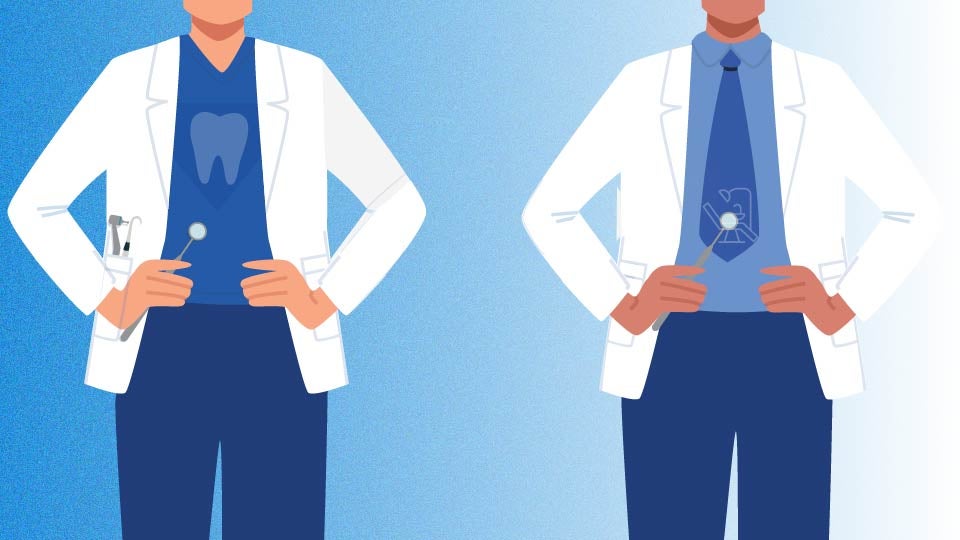Many oral problems can lead to tooth pain. Cavities, gum disease, and an injury are the three issues people most commonly associate with oral pain. But another issue that has the potential to cause serious pain, is a tooth abscess. A dental abscess may not be your first thought when you start having tooth pain, but it is something that dentists see all too often.
What Is a Tooth Abscess?
What Causes an Abscessed Tooth?
Tooth Abscess Types
Gingival Abscess
A gingival abscess is an abscess that occurs in the gums and is the result of untreated gum disease.
Periodontal Abscess
A periodontal abscess is an infection that is located in the bone and tissues around the tooth. Untreated gum infection can lead to a periodontal abscess.
Periapical Abscess
A periapical abscess occurs at the tip of the root. A periapical abscess is often caused when a cavity or injury to the tooth goes untreated, and the infection is allowed to spread through the pulp of the tooth to the root.
Tooth Abscess Symptoms
Tooth abscess symptoms will vary depending on the type of abscess and the severity of the infection. Common tooth abscess symptoms include severe pain, localized pain that can flare up when you touch the area, fever, and swelling around your tooth. Other potential tooth infection symptoms include bad breath, bitter taste in your mouth, pain while chewing, increased teeth sensitivity, and generally feeling ill.
How Is an Abscessed Tooth Treated?
Treatment for an abscessed tooth may include getting a root canal, draining the abscess, extracting the tooth, and prescribing antibiotics. The bacterial infection needs to be effectively eradicated to prevent the abscess from continuing and worsening. Antibiotics for tooth infection target the bacteria, while the other treatment options aim to eliminate the pus buildup around your tooth.
Tooth Abscess Prevention
Improve Your Oral Hygiene Routine
Make Routine Teeth Cleaning Appointments a Priority
Routine Teeth Cleaning appointments are about much more than keeping your teeth looking good. During these appointments, the hygienist removes plaque and tartar buildup on your teeth. This helps prevent gum disease, decay, and, ultimately, dental abscesses. Your dentist will also look for signs of decay and damage during your routine dental appointments. These appointments are essential in the process of protecting your oral health from threats like decay and infection.
Get Help Right Away for a Dental Injury
Find a Dentist Near You to Treat an Abscessed Tooth
If you do not currently have a dentist in your area and are asking yourself how to find a dentist near me, start your search with the help of Smile Generation. Smile Generation offers an online portal that can connect patients with a network of highly qualified dentists and specialists. You can search for dentists in your area and narrow the options down based on the services that you need. You can find trusted local dentists and choose the one that is the best fit for you. At Smile Generation, you can also explore resources to help you pay for your current and future dental needs. Finding the right dentist does not have to be a guessing game – you can learn about your options before making that first appointment. Start your search for a dentist based on your location and then further narrow your options based on the services that you need.
If you are not ready to choose a dentist but want to continue learning about oral care and treatment options, check out the Smile Generation blog. The blog provides education and other resources to help you get the information you need to make educated decisions about your oral health.
Find your trusted, local dentist today!
Sources
- National Center for Biotechnology Information. (2017). Preventing chronic disease: Tooth decay. In PubMed Health. National Institutes of Health. Retrieved from https://www.ncbi.nlm.nih.gov/books/NBK493149/
- MedlinePlus. (2022, May 10). Tooth abscess. U.S. National Library of Medicine. Retrieved from https://medlineplus.gov/ency/article/001060.htm
- Mayo Clinic. (2023, June 22). Tooth abscess: Diagnosis and treatment. Mayo Clinic. Retrieved from https://www.mayoclinic.org/diseases-conditions/tooth-abscess/diagnosis-treatment/drc-20350907
Smile Generation blog articles are reviewed by a licensed dental professional before publishing. However, we present this information for educational purposes only with the intent to promote readers’ understanding of oral health and oral healthcare treatment options and technology. We do not intend for our blog content to substitute for professional dental care and clinical advice, diagnosis, or treatment planning provided by a licensed dental professional. Smile Generation always recommends seeking the advice of a dentist, physician, or other licensed healthcare professional for a dental or medical condition or treatment.






